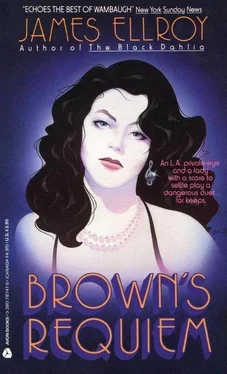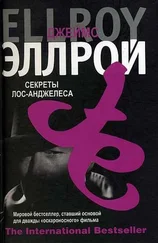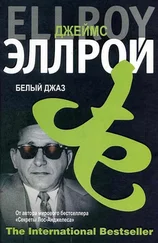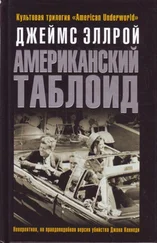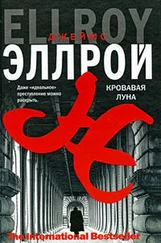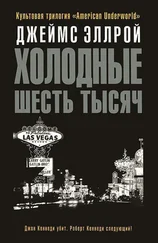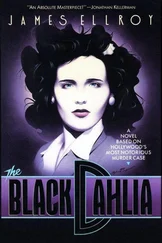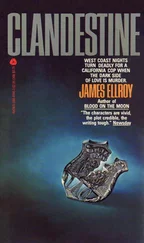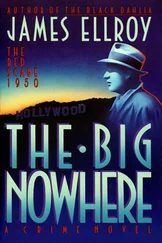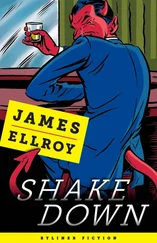He got to his feet. I grabbed his belt again and he moved forward, then fumbled in his pockets as we reached the door. As his key entered the lock and the door opened, I released his belt and kicked him full-force in the small of the back with the flat of my foot, thrusting him airborne into the dark room. He crashed into something wooden. This time he screamed. I found a light switch and flicked it on. I looked at Ralston’s handsome, bloodied face. He was scared, huddled on the floor next to an overturned nightstand.
The room was dank and sparsely furnished: a cot, a water cooler, the nightstand, and a deck chair. I told Ralston to get up and sit on the edge of the cot. He did, slowly. I shut the door behind me and drew a paper cup of water from the dispenser. I handed it to Ralston, who gulped it down. I removed my tape deck from where it was jammed into my pants, located an outlet next to the nightstand and plugged it in. I took a seat in the deck chair and eyed Ralston. I hardly knew where to begin. There was so much I needed to know.
Ralston broke the silence. “Look,” he said, his voice under control, “hurting me won’t help you. Fat Dog is dead. The men who killed him are dead. He was an arsonist. He started a lot of fires. He burned down Kupferman’s warehouse. I know that Fat Dog hired you, why I don’t know, but all this trouble began about that time. Sol Kupferman is a generous man. He’d be grateful to you. I could put in a word for you.”
It was the wrong thing to say. I dug brass knuckles out of my pocket as Ralston maintained eye contact with me and rambled on with his plea bargaining. “Solly K has been known to set people up in business, the whole shot,” he was saying as I leaped on top of him and slammed my iron clad fist twice into the fleshy part of his back. He started to scream, then thought better of it and began to whimper.
He was shivering, and I placed an arm on his shoulder and spoke softly: “Ralston, I know most of it. But you can put together some of the pieces. I need to see how it all works. If you don’t talk to me, now, I’m going to go internal. I’m going to bang your kidneys until it’s all over. If you don’t talk to me, I’ll maim you, then I’ll kill you. Tonight. Is it Cathcart that’s worrying you? Are you afraid he’ll get at you for talking to me? Nod if that’s true.” Ralston nodded, vigorously. “Good, that’s what I figured. I’ve got a handle on Cathcart. I know he’s cold, utterly ruthless, and a killer. But I’m worse. Cathcart might kill you for talking to me, but that’s an unknown factor. If you don’t talk to me, you die. That’s absolute. And Cathcart’s finished. I’ve got Fat Dog’s scrapbook, I’ve checked out Cathcart’s palace in Baja, I know he’s got to be the big man in this Welfare scam. He can’t do you any good now. But if you help me you’ll survive. You gonna talk?” Ralston nodded again.
I gave him a minute to compose himself, while I loaded the tape deck with a spool of blank tape. I attached the condenser mike and held it a foot or so from Ralston’s face. He flinched as he saw it, but cleared his throat as if preparing to speak. He was utterly demoralized and hurting. I took a voice reading, and played it back. The reception was good. Ralston fidgeted on the cot as I introduced myself to the machine and said that this was the companion interview to my previously recorded notes. I held the mike in my left hand and kept the brass knuckles coiled into my right fist, which I waved in front of Ralston. “The truth, Ralston,” I said. “Get ready. What is your name?” I said into the mike.
“Richard Ralston.”
“Your age?”
“Forty-seven.”
“Where are you employed?”
“At the Hillcrest Country Club.”
“In what capacity are you employed?”
“As the starter and caddy master.”
“How long have you had this job?”
“Since 1958.”
“How did you get the job?”
“Through Sol Kupferman.”
“How did you know Kupferman?”
“Through baseball. We got friendly at the old Gilmore Field games. I was a shortstop for the Hollywood Stars. Kupferman was a big fan.”
“Did you help Kupferman run his bookmaking operation at the Club Utopia?”
Ralston squirmed and ran a sleeve over his sweaty face. “Yes. I collected the bets, sent guys to the track to place them, that kind of thing. It was penny ante, but Solly paid me well.”
“Are you still involved in bookmaking?”
“Yes. Still small time.”
“When did you meet Frederick ‘Fat Dog’ Baker?”
Ralston started to open his mouth, then changed his mind. He seemed to be gathering his mental resources. I raised my right hand, metal encased, to within an inch of his face. “The truth, Ralston,” I said, “I know everything about Fat Dog and Solly.”
Ralston nodded, resigned. “Sol Kupferman told me to bring Fat Dog out to Hillcrest. This was when he was about fourteen or so. For some reason he wanted Fat Dog around. I got him started caddying. There was another caddy, George Hansen, that Solly felt sorry for, and fixed up with a job at Hillcrest. He used to be Fat Dog’s foster father. Solly fixed that up, too. Later I figured out that Fat Dog was really Solly’s son, born out of wedlock.”
“Who firebombed the Club Utopia in December 1968?” I asked.
Ralston shuddered, and trembled when he said it: “Well, Fat Dog Baker planned it, and used the three guys who were caught for it, I forget their names, to do the actual job.”
“Did Kupferman know his son did the bombing?”
“He found out later, Cathcart told him. That was Cathcart’s lever on Solly. He popped Fat Dog for the bombing, but let him slide, because he wanted to squeeze Solly. Cathcart came to me and made me talk. I knew him from 77th Street Vice. He rousted me a few times, when he was on the Vice Squad. I told him Fat Dog was really Solly’s son. He told me not to let Fat Dog know, ever. He told me he had big plans for Solly and that he could use me to help him out.”
“What kind of plans did he have for Kupferman?”
“The Welfare gig. He was planning it then. He needed a penman. Solly was the master penman of the West Coast. He made a fortune counterfeiting and signing stock certificates for the mob. Cathcart wanted him to sign the checks, to get payment.”
“Do you mean the Welfare checks that people receive fraudulently?”
“Yeah. The signatures all had to be different.”
This was puzzling. “But don’t these checks have to be signed in front of the person who pays out the money?”
“Yeah, but Solly’s got over two dozen liquor stores that he owns and partnerships in a couple dozen others. All the checks get cashed there.”
“How does this scam work, exactly?”
“Cathcart’s got eight or nine caseworkers working for him. Investigators, too. Solly forges the applications, the caseworkers submit them for approval, the investigators, who are really just pencil pushers, pass them, and supervisors working for Cathcart authorize payment. He’s even got a guy in Sacramento monitoring the computer checks. It’s foolproof.”
“Where do you get the names of the phony applicants? Are they documented?”
“All the way. Solly does the printing and all the signatures, phony Social Security cards, birth certificates, the whole shot. He’s a genius.”
I kicked this around in my head. “Does the ledger that Fat Dog stole from you contain notes on the documentation?”
“Yes. How did you know about that?”
“Never mind. You did the writing in that ledger, right?”
“Right.”
“Why in Spanish?”
“No real reason. Just a fail-safe.”
“How long has this scheme been in operation?”
“Eight years. Since ’72.”
Читать дальше
